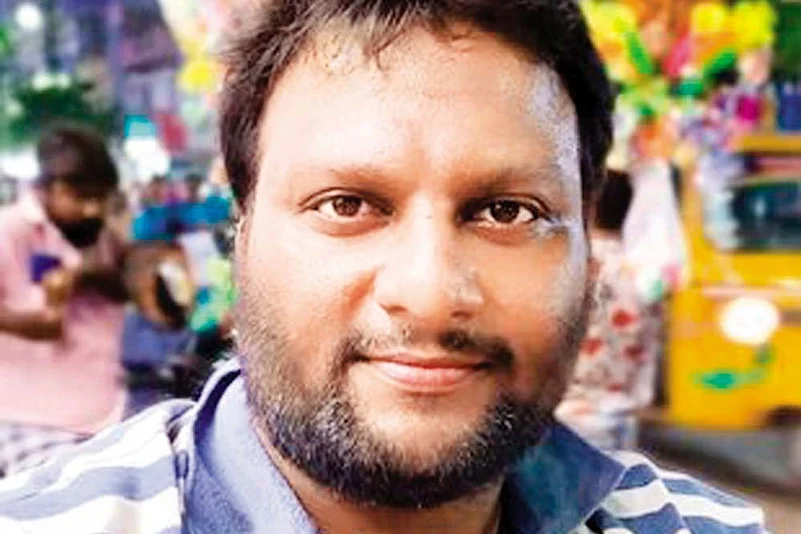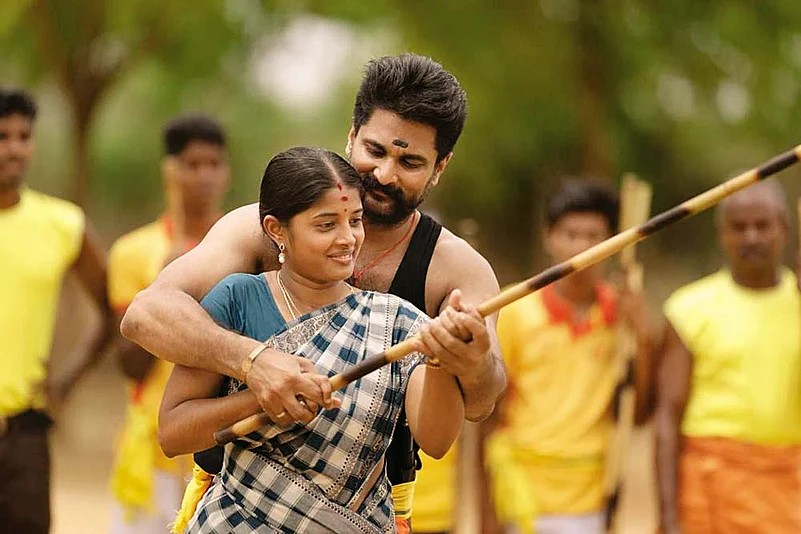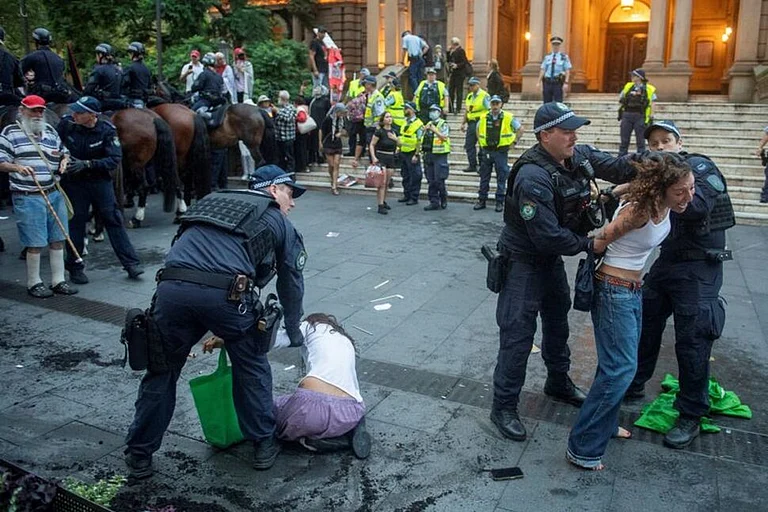Here is a movie that loudly acknowledges that castes are a reality and indirectly cautions against inter-caste marriages. And yet proves to be a runaway hit, outperforming another movie that frowns upon the scourge of honour killing in the name of caste.
The success of the small-budget Draupathi, when superstar Rajinikanth’s Darbar had under-performed, has confounded film trade pundits and political observers. Director Mohan G. had to resort to crowd funding as no producer would back a movie that urged young girls to protect their family pride (and thus, caste and community).
The film’s storyline is seen as a virtual endorsement of PMK leader S. Ramadoss’s allegation that Dalit youths were snaring young girls from his Vanniyar community after the controversial death of a Dalit youth in Dharmapuri in 2012. The boy committed suicide after a girl from the Vanniyar community, who he had married, chose to return to her parents under community pressure.

Director Mohan G.
Draupathi, made with less than Rs 1 crore, recouped its budget on the first day itself, prompting theatres to increase their shows, though it has a shoddy look and a preachy feel about it. It continues to attract family crowds, especially women in the northern districts, where Vanniyars are numerically strong and Draupathi Amman is a popular village deity. The movie was also helped by the controversy over dialogues in its trailer, where a daily wage-earner asserts, “Our leader has urged us to corner and marry only girls from a big family (upper caste) so we can settle down in life.”
Leaders of Dalit and left parties called for banning the movie, saying it would lead to caste tensions as it portrayed Dalit youths in poor light. But BJP’s H. Raja and PMK’s Ramadoss sprang to Mohan’s defence, asking why a film that exposed fake love affairs and a fake marriage certificate racket should be banned. Ultimately, the film was released after being cleared by the review committee, with some dialogues muted and images blurred, heightening viewers’ curiosity.
“The film is attracting repeat audiences as viewers want to make sense of what the muted dialogues were,” admits a Chennai theatre manager. “If the censors had not blurred a photograph…viewers would not have cared to find a person’s identity...now they know him to be Arthanareeswara Varma, a little-known freedom fighter from the Vanniyar community,” says lawyer K. Sumathi.
“In spite of all the misgivings and warnings by political leaders, my film has no reference to any caste name. It is meant for girls from all communities. Is it wrong to ask girls to be careful while choosing their partners and to keep their family in the know? Ultimately, a girl returns to her parents’ home if her marriage fails,” explains Mohan, a Vanniyar. If a section of politicians had not frowned upon the trailer, the film may not have got such free publicity, he chuckles. Mohan’s resolve to release the film on social media if the censor board had not cleared it had also made him a hero among the Vanniyar youth.
The film also succeeds for having provided a counterpoint to pro-Dalit films directed/produced by director Pa. Ranjith, who has emerged as an important voice of Dalits in Tamil cinema. “The anti-Dalit narrative has seen the consolidation of OBCs and other intermediate castes on the political arena. Now it has been extended to Tamil cinema, as the bulk of this film’s audience consists of these communities,” says political commentator Raveendran Duraiswamy.
The success of Draupathi, when contrasted with the average collections of Kanni Madam (A girl’s perch), a film on honour killing, is a stark reminder that caste lines have solidified in Tamil Nadu in spite of the state’s long tryst with social justice since the 1920s. The caste cauldron will continue to be on the boil as the state heads towards assembly polls in another year.
By G.C. Shekhar in Chennai


























